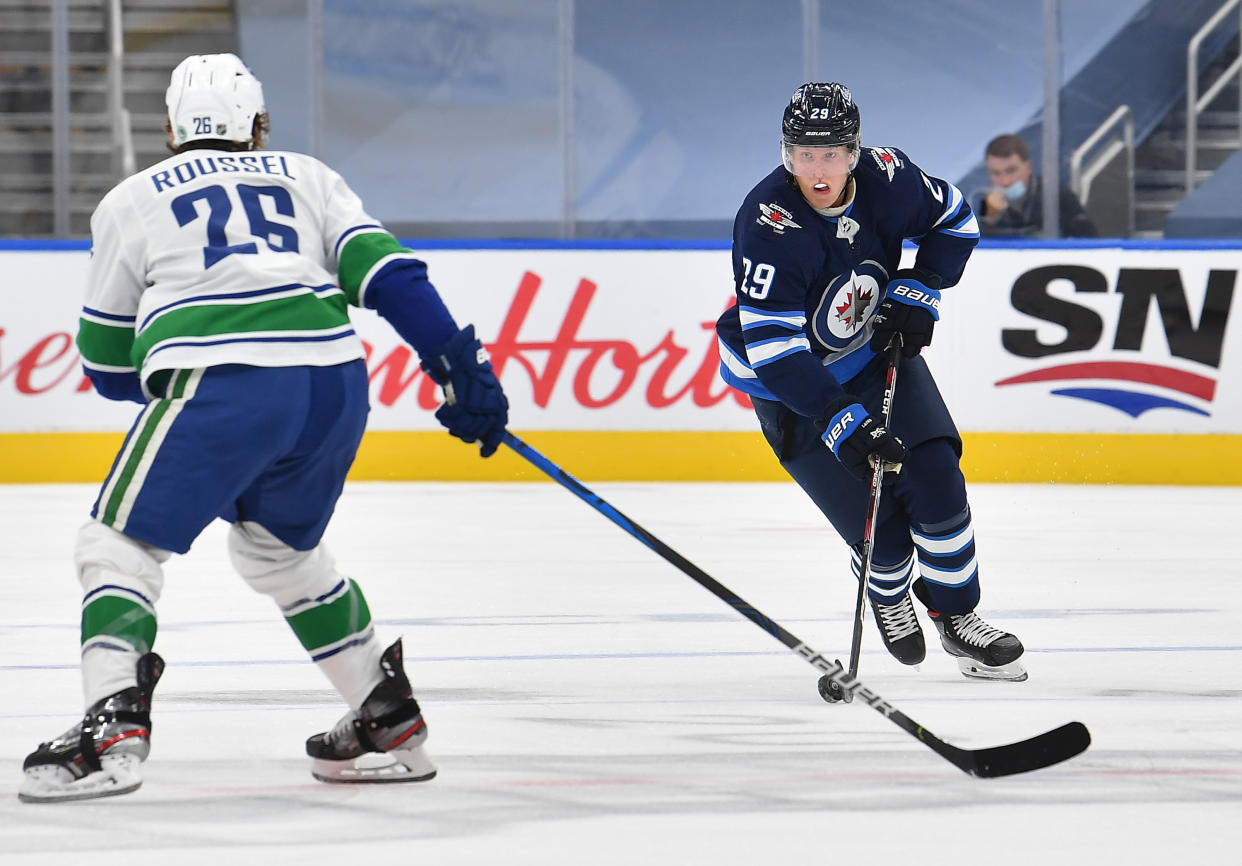Why a split is more beneficial for Patrik Laine than it is for the Jets

As NHL teams engaged in the process of improving their rosters and adding money toward the upper limits of their budgets this offseason, a move involving Patrik Laine’s current $6.75 million salary hasn’t, to this point, been part of it. The inconsistently consistent volume scorer has remained with the Winnipeg Jets after rumours persisted at the beginning of this strange offseason that he might be traded.
While not impossible now, the prospects of a whopping Laine trade have certainly diminished. That’s because most potential suitors have loaded up on the money that’s virtually impossible to move out amid this challenging economic reality in the NHL.
However, it seems Laine’s camp is still holding out hope.
Laine’s agents at Octagon Hockey, Mike Liut and Andy Scott, confirmed with TSN’s Pierre LeBrun that it would “probably would be mutually beneficial” for both their client and the Jets if Laine was traded this offseason, and that Jets general manager Kevin Cheveldayoff has a clear understanding of their position.
LeBrun adds that’s where the situation is “probably headed,” but that the Jets will not just ship out Laine to satisfy the desires of the player and his agency, and that Cheveldayoff will only trigger a move if it makes sense for the organization.
In the short term, it’s difficult to imagine that trading Laine will benefit anyone but, well, Laine, who seems certain that new surroundings will allow him to maximize his on-ice impact and therefore his earning potential. Laine is one of the very few players in league with an inherent ability to score goals, and nothing the Jets received in return can equate to the value Laine can provide, at least immediately.
Where a potential deal makes more sense for the Jets is down the road. This is the final season with Laine earning a manageable $6.75 million base intake. And while still under team control as a restricted free agent next summer, even an average goal-scoring season by his standard will put him in position for a significant raise, be it earned through arbitration or on a long-term deal worth his perceived market value.
The Jets have a significant portion of their salary cap — more than $27.5 million — tied up long term in four other forwards who, despite not sharing the same natural ability to impact the game in the most important way, are more valued by the organization, clearly. Carving out another $9 million for Laine will make it even more difficult to address the clear limitations Winnipeg has at other positions, namely its defence.
While the situation isn’t as Laine might claim it is, because he does log big minutes with the other top-end players in Winnipeg, he is something of a specialist on that roster, and therefore a rung below the others in terms of importance.
It’s really no fault of the player or the team that Laine and the Jets have just developed something of an incompatibility. First and foremost, it is fit — not cost, perceived value or performance — that has led the two sides to this seemingly irreparable point.
While unfortunate, it’s clear that this will work out for Laine, provided that his game doesn’t fall off the table. His desire to share the ice with top-end talent will be granted by the team that eventually pays the price to acquire him, and he will flourish there.
What’s really difficult to imagine is a scenario in which the Jets don’t waste some serious value — both in the player and from the No. 2 overall draft position back in 2016 — when they trade another seriously talented player from the organization — something that almost seemed inevitable the moment they signed Laine to a bridge contract out of entry level.
It’s that factor that is likely the foremost reason that a deal hasn’t happened yet — not that the Jets would be parting with maybe the best pure goal scorer in the NHL behind Alexander Ovechkin.
That’s why the only thing beneficial from the Jets’ perspective might be moving on from the discussion entirely.
And it’s why Laine is eager to have it.
More NHL coverage on Yahoo Sports




